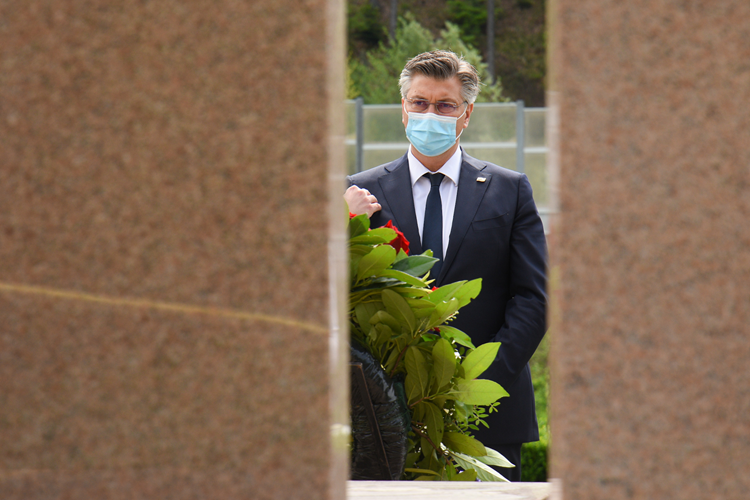


Accompanied by War Veterans Minister Tomo Medved, Plenković laid a wreath and lit a candle at a common grave at Macelj, near the border with Slovenia, for the victims of post-WWII death marches which in Croatia are called the Way of the Cross.
The victory over fascism, which inflicted much evil on Croatia, was crucial for the establishment of democracies in Europe, but primarily in Western Europe. Even though owing to its antifascist movement and resistance to Nazism Croatia emerged from World War II as a victor, it had to wait for almost half a century, until the fall of Communism and the establishment of democracy, to accomplish its full freedom, said Plenković.
Unfortunately, the horrible and mass-scale crimes by the Communist regime are a painful and traumatic episode of Croatia's history, he said, adding that therefore Croatia was remembering with respect the thousands of civilians and disarmed soldiers who were killed without trial and whose graves were left unmarked on death marches from Bleiburg to Tezno and all the way along the Way of the Cross.
We cannot change the past but we should draw lessons for the future. That starts with the clear condemnation of every totalitarian regime and their crimes and due remembrance for every innocent victim, said Plenković, adding that that was the only way to heal wounds from the past and avoid dangerous divisions, which his government was committed to.
It is our lasting duty to promote the culture of remembrance and build our society based on democratic values, where tolerance and mutual respect can only strengthen our sincere love for the homeland, Plenković said, noting that this was particularly important for the sake of young generations which, he said, would be able to develop true patriotism and build a better society only based on lessons from the past and on the values of the 1991-95 Homeland War.
According to some estimates, in Macelj and nearby forests around 13,000 people were killed in early June 1945. With 1,163 identified victims, including 21 priests, Macelj is so far the biggest site of Communist crimes in Croatia in the aftermath of WW2. Twenty-three mass graves have been exhumed at Macelj so far.
Text: Hina